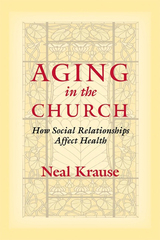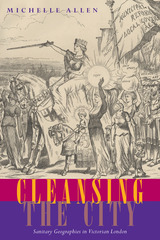
A growing number of studies indicate that older people in the church form social ties that have a significant positive impact on their physical and mental health. In Aging in the Church, Neal Krause comprehensively assesses the various relationships that stem from church involvement.
Among the many types of relationships Krause explores are close companion friendships, social-support structures (such as assistance provided by fellow church members during difficult times), and interactions that arise from Bible study and prayer groups. Through his thorough investigation of the underlying links between these relationships and the ways they relate to attributes like forgiveness, hope, gratitude, and altruism, the author hopes to explain why older adults who are involved in religious activities tend to enjoy better physical and mental health than those who are not engaged in religious communities. Going beyond merely reviewing the existing research on this subject, Aging in the Church provides a blueprint for taking research on church-based social relationships and health to the next level by identifying conceptual and methodological issues that investigators will confront as they delve more deeply into these connections.
Though these are complex issues, readers will find plain language and literature drawn from a wide array of disciplines, including sociology, psychology, public health, medicine, psychiatry, nursing, social work, gerontology, and theology. Literature, poetry, philosophy, and ethical ideas supplement the insights from these diverse fields. As a result, Aging in the Church takes on a genuinely interdisciplinary focus that will appeal to various scholars, researchers, and students.

Cleansing the City: Sanitary Geographies in Victorian Londonexplores not only the challenges faced by reformers as they strove toclean up an increasingly filthy city but the resistance to their efforts.Beginning in the 1830s, reform-minded citizens, under the banner of sanitaryimprovement, plunged into London’s dark and dirty spaces and returned withthe material they needed to promote public health legislation and magnificentprojects of sanitary engineering. Sanitary reform, however, was not alwaysmet with unqualified enthusiasm. While some improvements, such as slumclearances, the development of sewerage, and the embankment of the Thames,may have made London a cleaner place to live, these projects also destroyedand reshaped the built environment, and in doing so, altered the meanings andexperiences of the city.
From the novels of Charles Dickens and George Gissing to anonymous magazinearticles and pamphlets, resistance to reform found expression in the nostalgicappreciation of a threatened urban landscape and anxiety about domestic autonomyin an era of networked sanitary services. Cleansing the City emphasizes the disruptions and disorientation occasioned by purification—a process we are generally inclined to see as positive. By recovering these sometimes oppositional, sometimes ambivalent responses, Michelle Allen elevates a significant undercurrent of Victorian thought into the mainstream and thus provides insight into the contested nature of sanitary modernization.

READERS
Browse our collection.
PUBLISHERS
See BiblioVault's publisher services.
STUDENT SERVICES
Files for college accessibility offices.
UChicago Accessibility Resources
home | accessibility | search | about | contact us
BiblioVault ® 2001 - 2024
The University of Chicago Press









